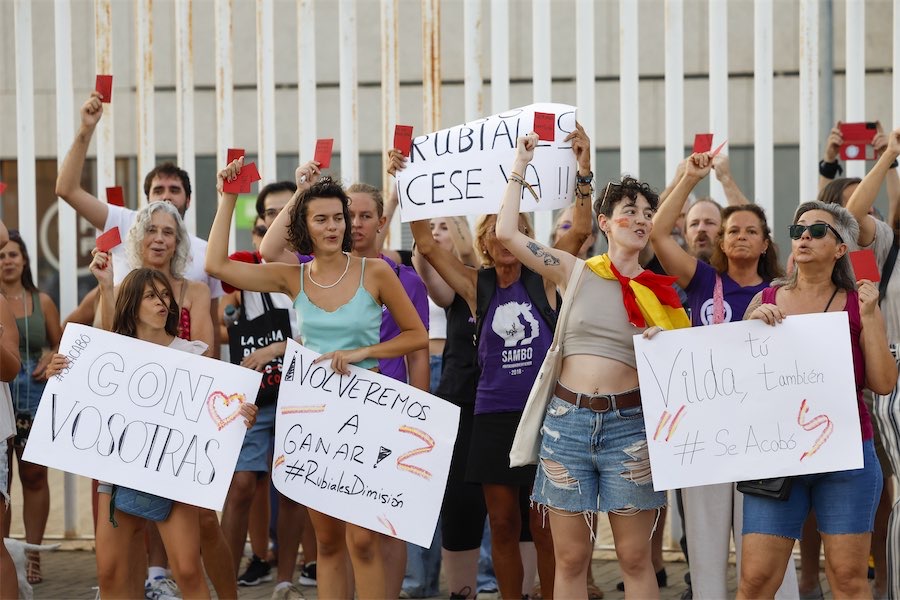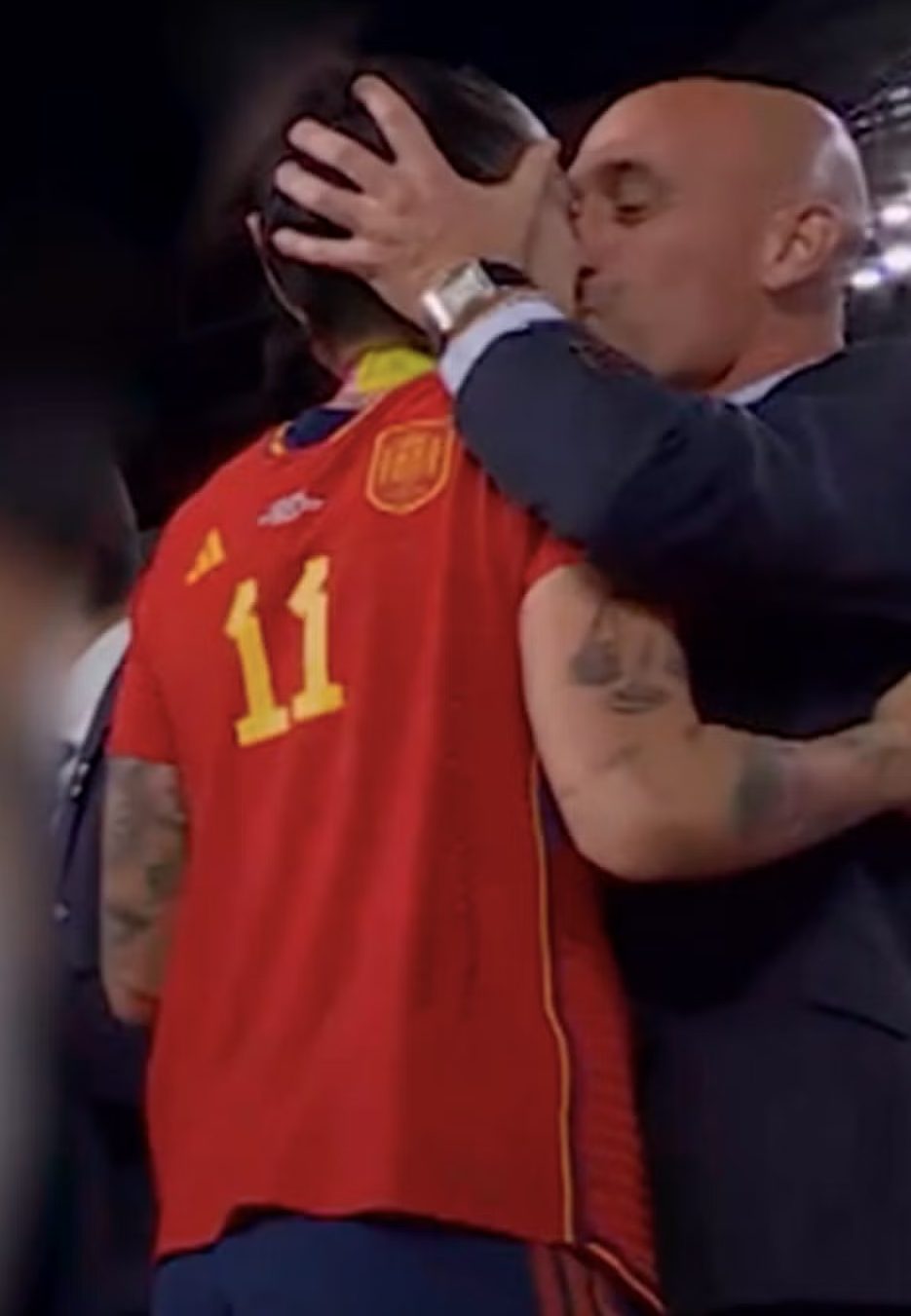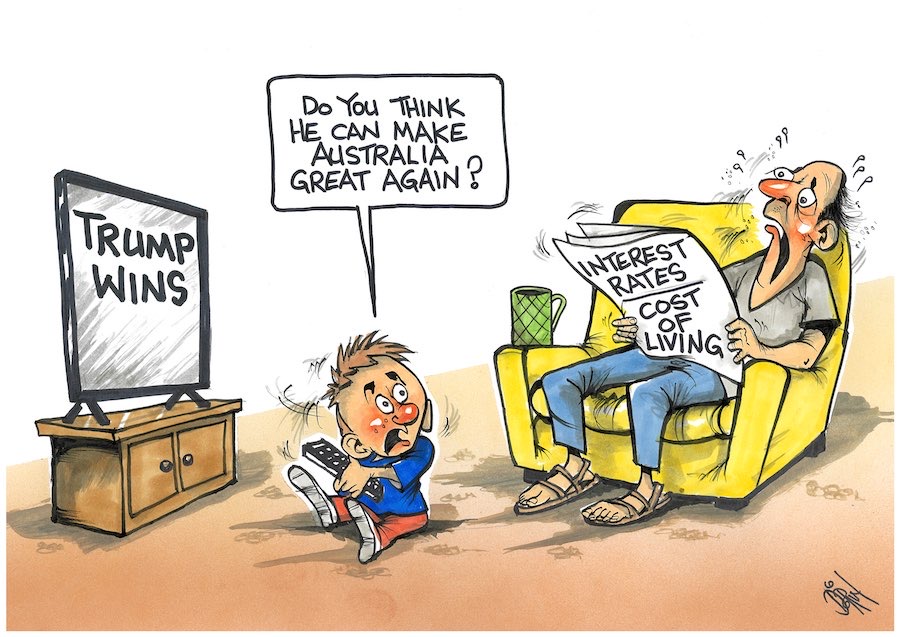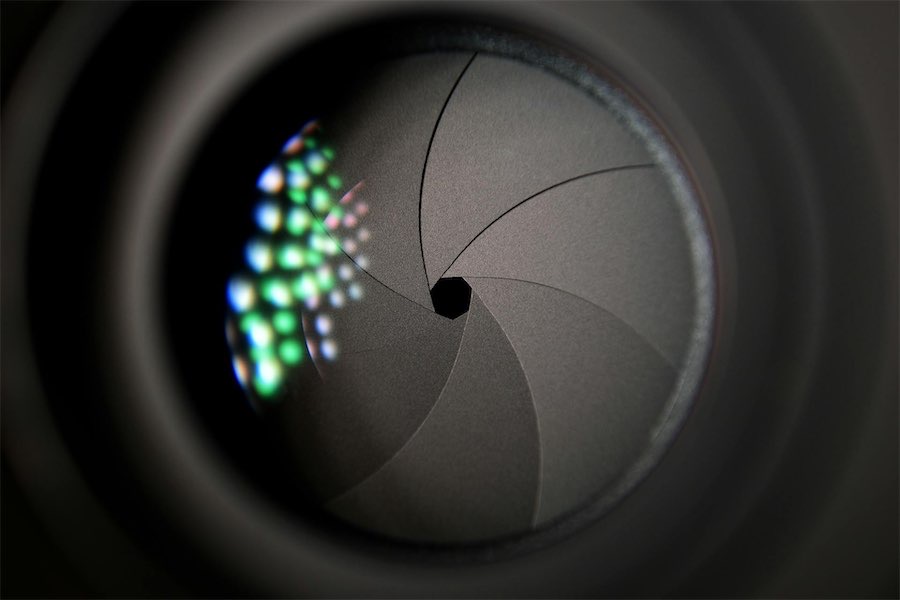
“I would much rather share an affectionate hug with a human than a pet animal, but other people have a different view, which deserves respect,” writes ROBERT MACKLIN.
IT began with what seemed a pretty silly decision by the ABC to elevate the story of the Spanish football president Luis Rubiales kissing their soccer captain Jenni Hermoso on the lips to item number three on the 7 o’clock news.

“Goodness me,” I mumbled to my wife Wendy. “Seems a bit over the top.”
She was only slightly more sympathetic to the captain who seemed perfectly happy with the gesture at the time as she moved on to the next hug.
“She didn’t look too offended,” Wendy said. And we were both surprised to hear that the whole team was now going on strike in support of Jenni. “What next?”
Well, next was the newsreader drawing attention to Mr Rubiales touching the general area of his genitals “while the members of the Spanish Royal family were only two or three rows away”.
“Oh dear,” I said. “It’s their me too moment.”
And there it might have ended. But very soon the Spanish kiss returned to the TV agenda via the SBS series, “Forest of the Missing”. We’d been following the first season as the French and German cops tracked down a serial killer in the Black Forest, thought to be a young woman who had been gang-raped some 15 years previously.
Now, however, the plot changed completely. The young woman was shot dead by the cops in the climactic episode of the season, but that was no more than an introduction to the real story.
Suddenly, the female doctor who had been treating the rape victim (and a female French judge) revealed herself as the leader of a vigilante group of women who had taken up arms to fight the men who had been accused of violence against their female partners.
What’s more, they were proud of their actions and it looks as though they will be rousing their compatriots to action via the courtroom drama to follow in the next season.
It turns out that the violence against women partners – and the lack of action in the courts so prevalent in Australia – is just as bad in Europe.
In fact, their statistics seemed an even greater injustice than the one-in-five violence against Australian girls and women. But either way, it’s completely unacceptable; and the women have a damn good point: if the system won’t respond, then vigilante action is the only way to get society’s attention.
That puts the Spanish kiss by Mr Rubiales in an entirely different context. And while he’s a horrible chauvinist, it’s a conundrum I find particularly challenging.
Our family was divided into mum’s people who were great huggers and kissers at the drop of a hat, and dad’s emotionally repressed English folk who blanched at the very thought of such physical expressions of pleasurable embrace.
I inherited Mum’s tendencies, but I have discovered that these days the tide has turned, and spontaneous hugs (let alone cheek kisses) are not necessarily all that welcome. In fact, they can be seen as “power imbalances” and “non-consensual” actions from a white male oppressor. And I guess there is a kind of truth in the reaction.
I wish it were not so. I would much rather share an affectionate hug with a human than a pet animal, but other people have a different view, which deserves respect.
I wish there was another way. I remember as a teenager thinking we’re stuck with a dilemma – our bodies are ready for procreation, but our ever-rising longevity means there’s many years of frustration before society’s rules permit us the “natural” sexual outlet of marriage or partnership.
The result, too often, is an emotional crippling that finds expression in violence. It used to be called (with a chuckle) “the war of the sexes”, but now it seems, we’re on the brink of a Spanish civil war. And we know where that leads.
Who can be trusted?
In a world of spin and confusion, there’s never been a more important time to support independent journalism in Canberra.
If you trust our work online and want to enforce the power of independent voices, I invite you to make a small contribution.
Every dollar of support is invested back into our journalism to help keep citynews.com.au strong and free.
Thank you,
Ian Meikle, editor




Leave a Reply